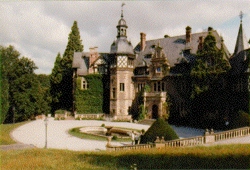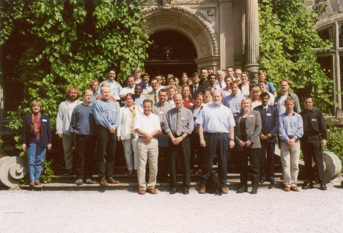2001 - Giessen, Germany
The 1st International SWAT Conference was held in Giessen, Germany in August, 2001 and hosted by Justus-Liebig University. The objective of the conference was to assemble international scientists who have been developing and applying the model to share experiences and build partnerships.
Fifty scientists from 13 countries (Germany, Belgium, Syria, Bulgaria, Italy, Czech Republic, Tunisia, India, Austria, Columbia, South Africa, the U.K. and U.S.) attended the conference and delivered presentations ranging from SWAT applications in Europe, India, and South Africa, to development of new components for bacteria, forest growth, flood routing and auto-calibration.
Hydrological Processes: SWAT 2000 Development and Application
Download the special issue, published in 2005, which was a product of this conference. The special issue covers several aspects of large area modeling including; calibration, GIS interface development, application of models in data poor regions, spatial scaling, and development of sub-models for pathogens, riparian zones, and forest growth.
Conference Organizing Committee
Jeff Arnold (Texas, USA)
Raghavan Srinivasan (Texas, USA)
Susan Neitsch (Texas, USA)
Mauro Di Luzio (Texas, USA)
Nicola Fohrer (Giessen, Germany)
Location
Participants stayed at the Castle Rauischholzhausen, situated in the village of Rauischholzhausen, between Marburg and Giessen. It was built 1870-76 and is surrounded by a beautiful English Garden.

Agenda
| August 13 | Paper sessions of SWAT users, experience with the model, working concepts, application background |
| August 14 | Morning paper session and presentation on SWAT 2000 from developers, in the afternoon small working groups:
|
| August 15-17 | SWAT 2000 workshop, hands on model training in the PC lab. |
